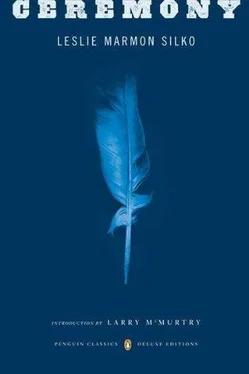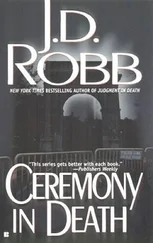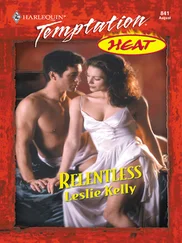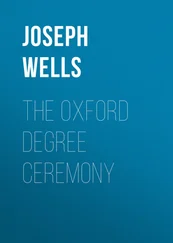The storm left the sky thin and dappled gray, like a molted snakeskin. “An early snow,” he said, “maybe it will be a wet winter. A good year next year.”
She didn’t say anything; she was stepping carefully over the snow, which had drifted in some places deeper than the tops of her moccasins. The clay and snow were churned into a muddy trench along the gate where the cattle had milled around, pushing their bony heads against the juniper poles, working for another escape.
He followed her inside and pulled the gate closed behind them. She walked close to the arroyo bank to avoid the manure and mud. The cattle backed into the far left corner of the barrier; their eyes were wide and frightened, and some were pawing the mud. Their breathing formed a single cloud of steam that drifted up, floating away over the banks of the arroyo. As they walked closer, the cows crowded closer together, and some of them lowered their heads and snorted as if they were fending off coyotes. He didn’t like being on foot in the corral with them, because he suspected that human beings mattered very little to them, and it was only the size of the horse, not the rider, which they respected. But the woman was not afraid. She stepped closer to the cattle, bending down to inspect their bellies and legs, walking a half circle in the muddy snow, looking at all of them. They watched her tensely.
The snow had melted into their hides, washing out the dirt and manure, leaving them silky white; the spots were golden brown. The butterfly brand and Auntie’s rafter 4 were barely visible through the heavy new growth of winter hair. Josiah had wanted something more than the stupid drooling Herefords the white ranchers had, something more than animals that had to be driven to water like sheep, and whose bellies shrank around their ribs before they would eat cactus or climb the ridges for brush and bark.
“My uncle was looking for cattle that could survive drought and hard years.”
She stepped back from them and nodded her head. Her moccasins were muddy.
“It’s a wonder you got this many back again,” she said. “Look.” She pointed at the necks of the cows closest to her. Rope burns left dark scabby welts in half circles. Strips of hide were missing around their fetlocks.
“Texas roping,” she said. “They wanted these Mexican cattle because they are fast and tough. And no loss to them when they happen to break the legs or the neck.”
He had never heard it called Texas roping before; he knew it as steer roping, because they used old stringy Mexican steers rather than more expensive cows or calves. It had come from Texas with the cowboys, and it was almost too simple: they rode massive powerful roping horses that were capable of jerking down a steer running full speed, knocking the animal unconscious and frequently injuring or killing it. It was the sport of aging cowboys, too slow and heavy to dismount to wrestle down and tie the animal as they did in calf roping and team tying. He had seen it only once. At the rodeo grounds in Grants. The steer had to stay down for ten seconds before the roper’s time could be recorded. The jackpot had been three hundred dollars that day, and the red-faced white man who took it turned in a record time: six seconds; but when the men loosened the rope on the steer’s neck, it did not move. They dragged it away behind two horses, one of the forelegs dangling in the hide, shattered. The anger made him lightheaded, but he did not talk about this other dimension of their perversion which, like the hunting of the mountain lion, was their idea of “sport” and fun.
They walked back to the corral. She watched him shake the snow off the saddle blanket and lead the mare to drink at the spring. He looked up at the sky; the sun was in the center of the south sky, covered with high gray clouds.
“I wonder if they’ll come looking for the cattle?”
She shrugged her shoulders, unconcerned.
“They won’t come down here,” she said.
“Why not?”
She gave him a look that chilled him. She must have seen his fear because she smiled and said, “Because of all the snow up there. What else?” She was teasing again. He shook his head.
“I’ll get back here and get them as soon as I can,” he told her. He took a long time tightening the cinch and checking the leather lacing in the stirrups. He wanted to say something to let her know how good it felt to have her standing close to him. But the hunter was still in the house, so he said nothing. As he stepped over to tie the bedroll behind the saddle, he brushed against her side gently, and she smiled. She knew. She walked close to him as he led the mare out of the corral gate. She pointed at the dusky clouds in the northeast sky.
“It will be cold tonight. The mud and snow will freeze.”
“I hope so,” he said, “otherwise, the truck will get stuck so deep we won’t be able to get it out until next spring.” She laughed and nodded.
“Good-bye,” he said.
“I’ll be seeing you,” she said.
When he turned to wave at her, she was gone.
Robert stayed in the big stake-bed truck they had borrowed from their cousin Romero. Tayo went to the door. The apricot tree had dropped yellow leaves all around its dark arched branches, and the wind now scattered them around Tayo’s feet. His knocking echoed far inside. He couldn’t smell any wood smoke and he heard no sounds inside. He pushed the door open and went in. He could see his own breath as he walked through the empty rooms to the kitchen. He smelled clay and old pine from the vigas in the ceiling. The kerosene lamps were gone, and the coffeepot was pushed to the back of the stove. He stepped through the low doorway into the back room where they had slept together. The curly goat hides and the blankets were gone. The bare plaster floor was swept clean. But on the north wall of the room there was an old war shield hanging from a wooden peg set into the white clay wall. He did not remember seeing it before. It was made from a hide, elk or maybe buffalo, heavy and stiff enough to stop stones and arrows; long dry years had shrunk and split the edges, and it had lost the round shape. At first he thought the hide had turned black from age, but he touched it and realized it had been painted black. There were small white spots of paint all over the shield. He stepped back: it was a star map of the overhead sky in late September. It was the Big Star constellation old Betonie had drawn in the sand.
“Nobody home,” he told Robert. The cattle had been driven from the trap in the arroyo to the corral, where they could water in the pond.
“Somebody fed them good,” Robert said, pointing at the pile of dry cornstalks on the ground in the corral. He backed the big truck up to the loading chute. Tayo swung the tailgate open. He stood in the corral behind the cattle and waved his arms at them until one by one they hesitantly stepped into the back of the cattle truck.
“They look real good, Tayo,” Robert said. “Somebody’s been looking after them for you.”
“So old Betonie did some good after all,” old Grandma kept saying. She was sitting by her kerosene stove, cracking piñons with her front teeth. She had been sick in early December, and her corner by the stove still smelled like Vicks and Ben-Gay. She wore the old black cardigan all the time now, even on warm days, and she insisted on keeping her legs wrapped up in strips of an old wool blanket.
“You’re all right now, aren’t you, sonny?”
“Yeah, Grandma, I’m okay now.” He was cleaning the.22, getting ready to go out after rabbits. Auntie looked at him, but when he looked up at her, she turned away to the stove to the simmering stew and boiling coffee. She had been watching him; she was waiting. She didn’t trust the peace they had in the house now. She was waiting.
Читать дальше












